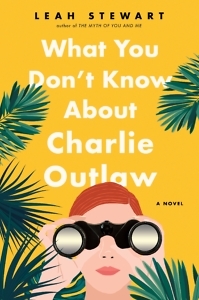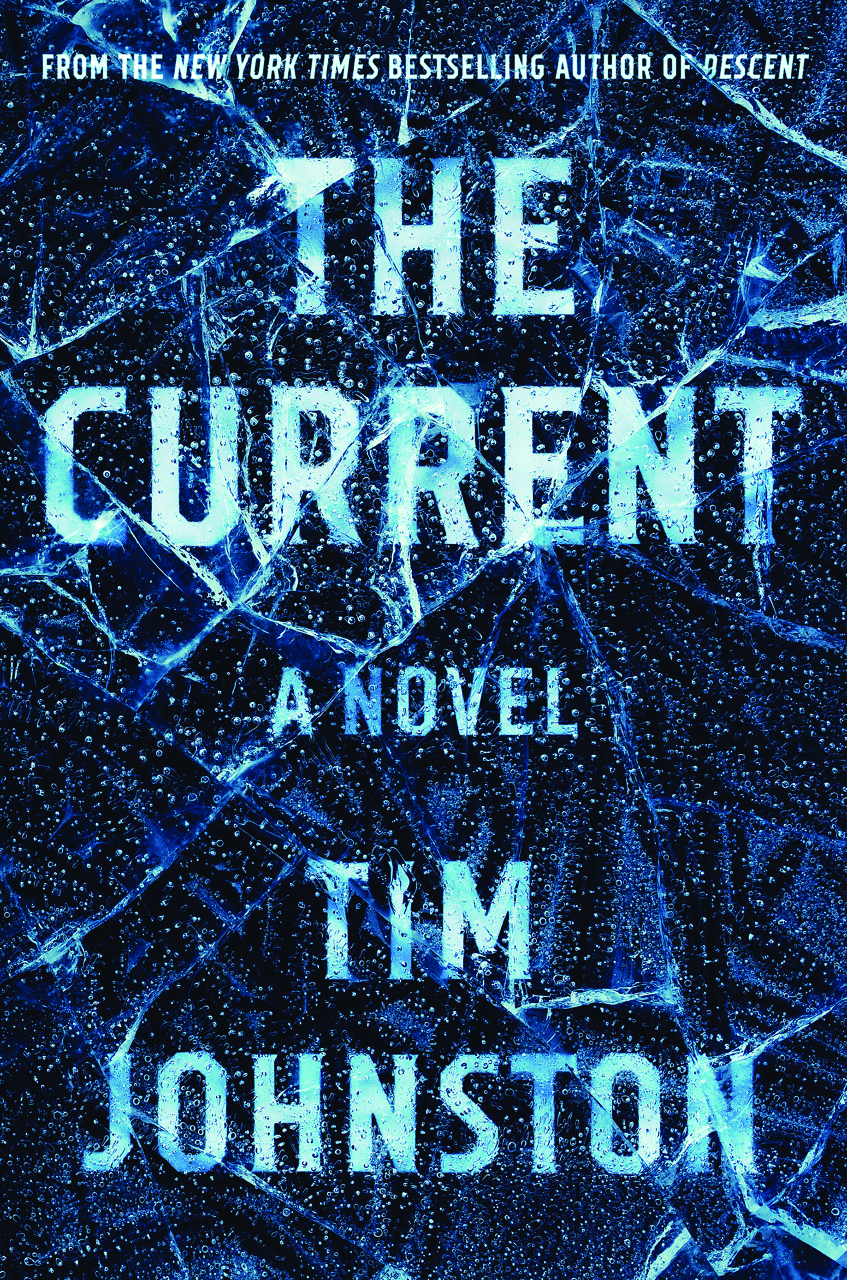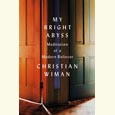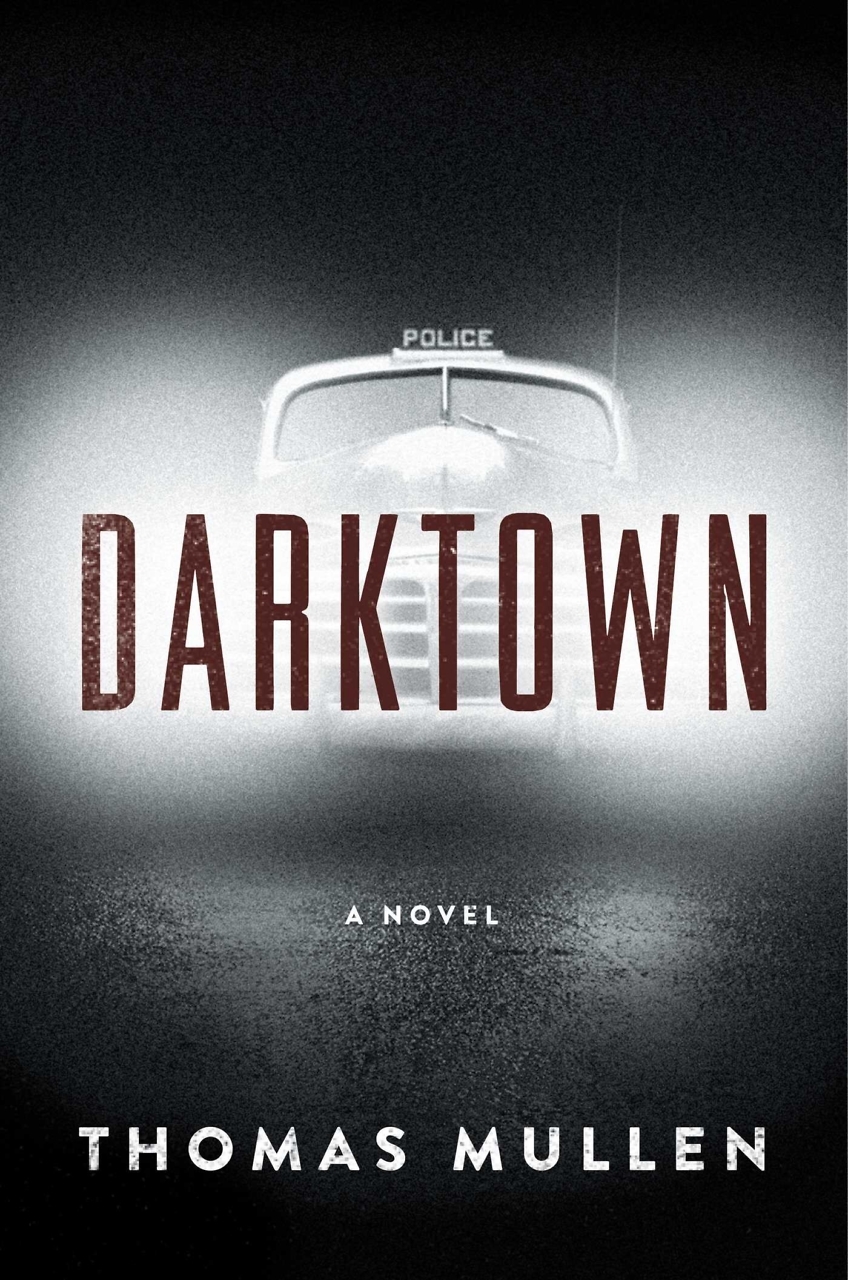At the Intersection of Real and Not Real
Leah Stewart’s latest novel shines a spotlight on the art of acting under pressure
“Something terrible is about to happen to Charlie Outlaw,” Leah Stewart writes in the opening passage of her clever new novel, What You Don’t Know About Charlie Outlaw. “This terrible thing will slam into his life with such shocking force as to seem impossible, implausible, even as it’s happening. If we could reach into his story and warn him, he’d struggle to believe us.”

Thus in a few sentences, Stewart establishes the voice of her omniscient narrator, a voice that routinely breaks the fourth wall, revealing information to which the story’s characters are oblivious. It’s an effective device in this comic novel of love and suspense. Ostensibly the story of a kidnapping, the book also considers the philosophy of acting and the cult of celebrity.
Charlie Outlaw is a likable, popular actor who plays the leading role in a successful TV drama. When the novel opens, his popularity has just taken a hit thanks to a Vanity Fair interview in which Charlie has been a bit too honest. “Fame insists that vulnerability be armored in wariness,” the narrator explains, “but Charlie has not been famous very long. He resists the lesson. He still wants to be himself.”
Because of the disastrous publicity following the interview—and the subsequent loss of his girlfriend, who is also offended by the article—Charlie has fled alone to an island resort to lick his wounds. The only thing more difficult to weather than popularity is, apparently, its loss: “He’s been mainlining love, a dose so strong that the high teeters on the edge of pain,” Charlie thinks. “It’s terrifying to be worshipped, more terrifying still to imagine being worshipped no longer.” When Charlie is kidnapped by an inept but violent group of local radicals, he suddenly faces the greatest role of his career, one for which he must employ every acting trick he knows merely to survive.
 Meanwhile, Josie Lamar, Charlie’s erstwhile girlfriend, is dealing with her own troubles in Hollywood. Twenty-five years earlier, Josie was at the top of her profession—the beloved star of a popular, long-running action series. Now she struggles to find work as a one-off guest star on crime shows and sit-coms. She loves Charlie, but it’s not easy to find herself on the periphery of his spotlight.
Meanwhile, Josie Lamar, Charlie’s erstwhile girlfriend, is dealing with her own troubles in Hollywood. Twenty-five years earlier, Josie was at the top of her profession—the beloved star of a popular, long-running action series. Now she struggles to find work as a one-off guest star on crime shows and sit-coms. She loves Charlie, but it’s not easy to find herself on the periphery of his spotlight.
Even as she mourns her relationship with Charlie, Josie braces for the upcoming cast reunion of her original show. Of special interest to the public is her relationship with her former leading man—everyone wants to believe the passion they saw on their screens is also true in real life. “A good actor is an instrument of exquisite sensitivity,” Josie thinks. “Exposing yourself over and over, and then having people come at you eager for more exposure. Wanting to excavate.”
The story alternates between Charlie and Josie, each section opening with quotations from famous acting teachers. These passages highlight each protagonist’s problems—somehow maintaining a balance between life-threatening, career-threatening, and ego-threatening concerns as Stewart successfully mixes suspense, love, comedy, and a sincere examination of art and culture. Will Charlie survive his plight? Will Josie forgive Charlie? Will writers ever see actors as more than “black holes of need”? Can actors learn to protect their mental health by separating the emotions they manufacture from the ones they truly feel? And what of the fans and the role they play in bringing the world of make-believe to life?
“It’s a funny thing,” Charlie thinks, “how people will say I love you to a stranger more readily than to a person they actually know. What kind of love is it that can be offered up so freely? Who is it they love? Their love exists at the intersection of real and not real, like the performance that made them feel it.”

A graduate of Auburn University, Tina Chambers has worked as a technical editor at an engineering firm and as an editorial assistant at Peachtree Publishers, where she worked on books by Erskine Caldwell, Will Campbell, and Ferrol Sams, to name a few. She lives in Chattanooga.


